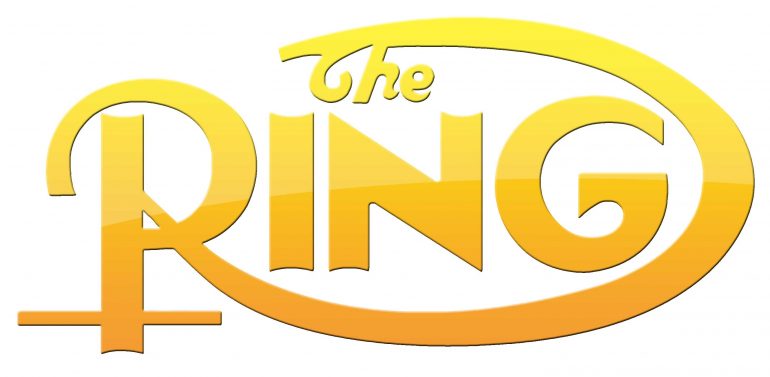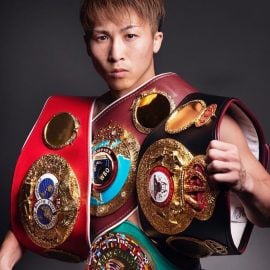THE RING fights back

Matthew Henry was not referring to boxing writers when he famously wrote that there are “none so blind as those who will not see.” But Henry’s words, written more than 250 years ago, would certainly apply to George Kimball and Ron Borges, who recently posted anti-Ring magazine articles on thesweetscience.com.
As a fervent advocate of the First Amendment, I strongly believe in the freedom of the press and everybody’s right to express themselves. Moreover, I accept the fact that The Ring is fair game, open to scrutiny and criticism, which is how it should be. I will not, however, allow disingenuous criticism of The Ring based on blatant falsehoods to go unchallenged.
Borges’ article, “We’re Sure Tavoris Cloud Is A Nice Guy, But ÔǪ” concerned Chad Dawson’s decision to relinquish the IBF light heavyweight title in order to fight a rematch with Glen Johnson, rather than IBF mandatory challenger Tavoris Cloud. Dawson’s promoter, Gary Shaw, was extensively quoted, including some erroneous statements about The Ring.
“Fortunately, belts don’t define Chad Dawson. He’s the light heavyweight champion and everybody in boxing understands that. People know that Ring’s champion (Bernard Hopkins) won’t fight him.” said Shaw. “Ring magazine can call him their champion because he fights for the guy who owns Ring magazine, but he’s not the champion of anything.”
The problem with Shaw’s totally unfounded accusation is that The Ring has not recognized Hopkins as light heavyweight champion since he lost the title to Joe Calzaghe on April 19, 2008! Moreover, The Ring’s 175-pound title has been vacant since Calzaghe retired in February 2009 — four months ago.
All of the information regarding Hopkins, Calzaghe, and The Ring light heavyweight championship is available in both the magazine and on RingTV.com, but clearly neither Shaw nor Borges thought it necessary to check the facts. Frankly, I wouldn’t expect Shaw to check the facts, but Borges, as a professional journalist, has an obligation to do so, especially as Shaw’s comment were highly defamatory.
Kimball’s screed, “Sanctioning Body Silliness: The Tradition Continues,” was far more egregious and contained a staggering number of untruths. Let’s examine some of Kimball’s malicious misinformation and set the record straight.
Falsehood: “The makeup of the Ring (ratings) panel is cloaked in anonymity.”
Fact: The names of every member of The Ring Ratings Advisory Panel has been listed on our website from the moment the panel was formed.
Kimball rephrases the same accusation three more times, clearly believing if you repeat a lie often enough it will be accepted as the truth. Sorry, that sort of tactic doesn’t work anymore, not when a couple of clicks of a computer mouse reveals the truth.
Falsehood: “Sometimes if a championship isn’t readily available, they’ll go out and create their own, which is what happened when Bernard Hopkins fought Winky Wright for what Golden Boy CEO Richard Schaefer proclaimed ‘The Ring Magazine 170-pound championship.'”
Fact: Hopkins won the light heavyweight championship from Antonio Tarver, who had won it from Glen Johnson, who won it from Tarver, who won it from Roy Jones, who had unified the three major alphabet belts. The Ring didn’t “create” anything for the purposes of Hopkins-Wright. Hopkins was the reigning champion, and both he and Wright weighed 170 pounds, which, as Kimball should know, makes them light heavyweights.
Falsehood: “The Ring decided Joe Calzaghe was no longer super middleweight champion even before Joe did, vacating the title when he moved up to fight B-Hop — even though Calzaghe had formally petitioned two sanctioning bodies to remain their 168-pound champion.”
Fact: The cover of the August 2008 issue of The Ring (on sale May 27, 2008) featured a photo of Calzaghe and a headline that read: “Double Champ Joe Calzaghe: If He Wants To Defend Both Belts ÔǪ Let Him!” Furthermore, The Ring continued to recognize Calzaghe as both 175- and 168-pound champion until I received an e-mail from Calzaghe that read, in part, “I have decided to relinquish The Ring super middleweight title because it has become clear to me in training for my fight with Roy Jones that I will never make 12 stone (168 pounds) again.”
Falsehood: “And if moving up in weight is supposed to disqualify a champion, how did Ricky Hatton, who did it twice to fight Luis Collazo and then (Floyd) Mayweather, keep the 140-pound title all those years? And hasn’t Kelly Pavlik fought as many times at super middle as he has at middleweight over the past 16 months?”
Fact: Moving up in weight temporarily has never disqualified Ring champions. In fact, before Hatton fought Collazo and Mayweather, he informed The Ring that he would return to junior welter to defend the 140-pound championship, which he did on both occasions. Pavlik also returned to middleweight and defended the title since his foray into the 168-pound class.
Falsehood: “Flying in the face of all logic, even after (Joel) Casamayor, in one of his rare outings, had been utterly exposed by Jose Santa Cruz, he was still recognized by Ring.”
Fact: Apparently Kimball is recommending that The Ring overturn official decisions that we disagree with, which is ludicrous. Regardless of whether we agree or disagree with the judges in any bout, The Ring, like everybody else, is forced to accept the official verdict. What The Ring can and should do is vigorously protest bad decisions in the magazine, which is exactly what we did in an article titled “Bad Fight, Worse Decision.”
Falsehood: “The Ring didn’t wait three weeks after David Haye had his first heavyweight fight to strip him and award its cruiserweight title to the Thomasz (sic) Adamek-Steve Cunningham winner yet they continue to recognize Israel Vazquez as their 122-pound champion even though he hasn’t fought anybody in the past 15 months.”
Fact: A simple check of Haye’s record reveals that he engaged in his first heavyweight fight on December 10, 2004, when he weighed 203¾ for his first-round KO of Valesy Semishkur, who was 217¾. But the fact that Haye occasionally fought as a heavyweight while campaigning mainly as a crusier is immaterial. What is important is that on May 23, 2008, The Ring received an e-mail from Haye’s manager, Adam Booth, relinquishing The Ring’s cruiserweight championship.
The Vazquez situation is clear-cut. He suffered a serious eye injury while defending The Ring junior featherweight championship against Rafael Marquez on March 1, 2008, an injury that eventually required several surgeries. As has frequently been explained in The Ring and on RingTV.com, we do not drop fighters, regardless of whether they are champions or contenders, from the ratings if their inactivity is due to a legitimate injury. When Vazquez announced during a live conference call, in late-May 2009, that he had been medically cleared to resume fighting, he also relinquished The Ring 122-pound title in order to compete in the 126-pound division.
There are a number of other invalid accusations in Kimball’s article, but I think I have already provided ample examples of his reckless disregard of the facts. Instead, let’s address the wider question of The Ring’s involvement with Golden Boy, which has understandably caused concern with some readers and industry insiders.
The Ring is frequently assailed by allegations of favoritism toward Golden Boy, which generally fall into two categories: Ambiguous and/or based on misinformation. The latter, as exemplified by Kimball and Borges’ articles discussed above, are relatively easy to deal with. You simply set the record straight with facts. Unspecific accusations, however, are more difficult to handle.
This sort of thinking is known as an argumentum ad ignorantiam (appeal to ignorance) or “negative evidence,” a logical fallacy in which it is claimed that a premise is true only because it has not been proven false, or is false only because it has not been proven true.
Nonetheless, I will attempt to show, through example, that there has been absolutely no favoritism shown to Golden Boy or their fighters. Let’s start by looking at the cover subjects (and their promotional affiliation) since the change of ownership, which began with the January 2008 issue of The Ring.
2008
January: Floyd Mayweather (independent)
February: Kelly Pavlik (Top Rank)
March: Miguel Cotto/Shane Mosley (Top Rank, Golden Boy)
April: Mayweather (independent)
May: Rafael Marquez/Manny Pacquiao (Golden Boy, Top Rank)
June: Oscar De La Hoya (Golden Boy)
July: Pavlik (Top Rank)
August: Joe Calzaghe (Frank Warren)
Fall: David Haye, Pavlik, Calzaghe (Haymaker, Top Rank, Frank Warren)
September: Antonio Margarito (Top Rank)
October: Pacquiao (Top Rank)
November: Margarito (Top Rank)
December: De La Hoya/Pacquiao (Golden Boy, Top Rank)
2009
January: Bernard Hopkins (Golden Boy)
February: Haye (Haymaker)
March: Pacquiao (Top Rank)
April: Mayweather (independent)
May: Ricky Hatton/Pacquiao (Golden Boy, Top Rank)
June: Marquez (Golden Boy)
July: Pacquiao (Top Rank)
August: Marquez/Mayweather (Golden Boy, independent)
That’s 28 cover subjects over the course of 21 issues, of which Top Rank had 12 fighters, as opposed to eight for Golden Boy and eight to various other promotional entities. Obviously, The Ring has shown no bias toward Golden Boy when it comes to magazine covers.
True, Golden Boy and Top Rank are tied with three fighters each on The Ring’s current pound-for-pound ratings, with the other four slots going to various other promoters’ fighters. But it is Top Rank’s Pacquiao who holds the prestigious top spot. Moreover, of the five weight classes in which The Ring currently recognizes a world champion, only one, lightweight champ Juan Manuel Marquez, is promoted by Golden Boy — again, no evidence of preferential treatment.
When Sports & Entertainment Publications, LLC (a division of Golden Boy Enterprises) purchased The Ring, both De La Hoya and Schaefer promised total editorial independence, and have kept their word. Not once in almost two years has anybody connected to Golden Boy contacted anybody employed by The Ring in an attempt to influence the editorial content of the magazine. But as I frequently tell critics, don’t take my word for it, the proof is on the pages of The Ring, a much better source of information than writers such as Kimball or Borges, who shoot from the hip rather than bothering to check the facts.
Nigel Collins is the Editor-in-Chief of The Ring and can be contacted at [email protected]














